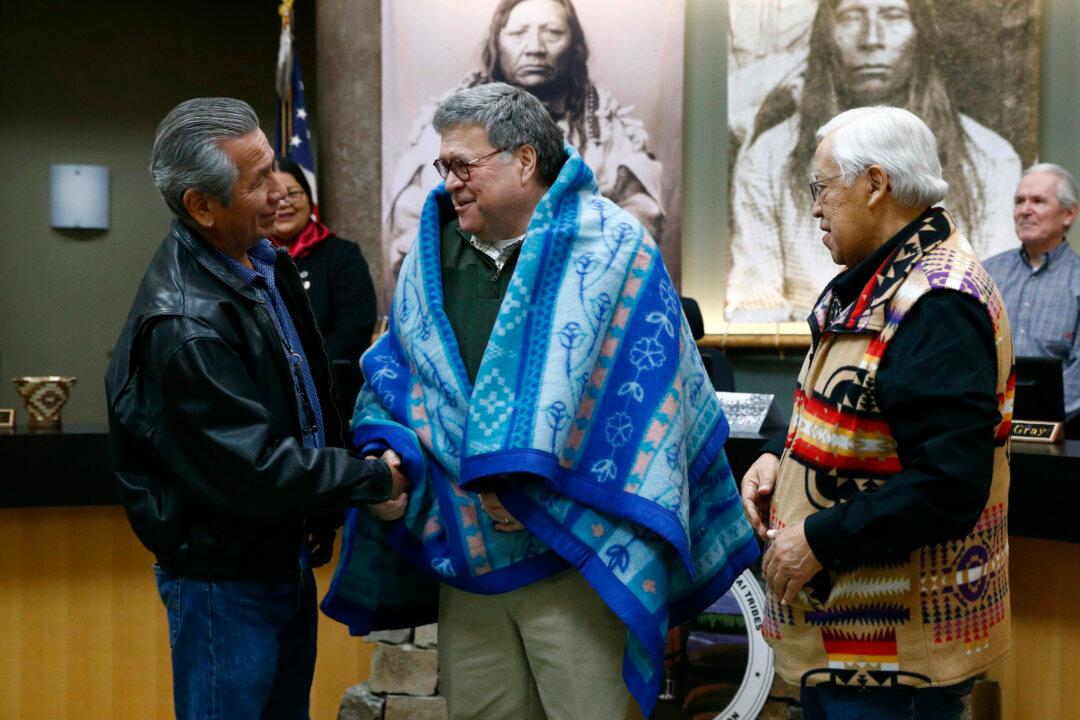Attorney General William Barr has launched a national plan to address the large numbers of missing and murdered Native Americans amid concerns about the disproportionately high levels of violence they face.
Barr unveiled the Justice Department’s (DOJ) strategy called The Missing and Murdered Indigenous Persons (MMIP) Initiative during a visit with tribal leaders and law enforcement officials at the Flathead Reservation in Montana on Friday, Nov. 22. The Flathead Reservation is home to the Confederated Salish and Kootenai Tribes (CSKT).




